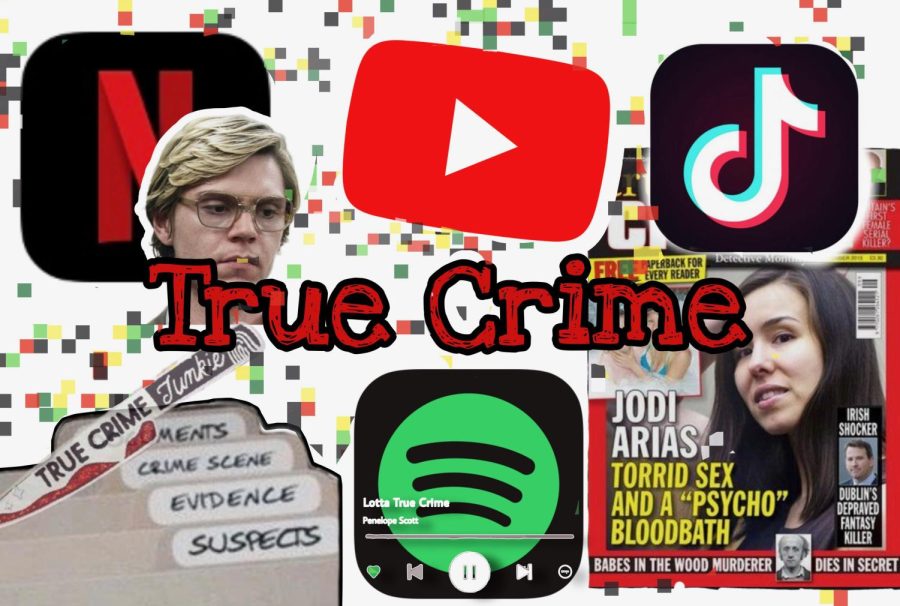Murder, torture, and crime: three words you might never expect to describe the most popular genre of documentaries and the fourth most popular genre of podcasts. Over half of Americans enjoy true-crime content, but many fail to recognize the ways this new type of entertainment harms real victims and watchers.
True crime is a genre of storytelling that explores the often gory details of actual crimes, usually cases involving murdered and missing people. This trend has been on the rise for the past couple of years and can be found on the most popular social media sites. The TikTok hashtag “true crime” has 25.7 billion views, yet the largest proportion of TikTok users are 10 to 19 years old, leading many impressionable teens to see graphic depictions of true crime cases pop up on their “For You Page.”
America is divided upon whether they believe true crime is a good thing. Proponents believe that it brings awareness to unsolved crimes, builds empathy for victims, and makes people more careful and safety-conscious. However, more than not, Americans believe the genre desensitizes people to violence and makes them more likely to commit a crime, according to a YouGov America poll. This desensitization is an extremely dangerous consequence of exposure to violent material, according to a American Psychological Association study, youth often act more violently and view violence as normal after excessive violence exposure in media.
Additionally, the desensitization to violence from these shows tends to make people forget that behind each morbidly exciting case is a victim. When their murders are broken down, oftentimes, the human behind the victim is lost, and the only memorable name is the killer themselves. For example, Netflix’s “Dahmer” TV series, which came out in late September 2022, received backlash from many concerned with the exploitation of these victims. Family members of the victims even stated that Netflix did not consult them while making the film. “I was never contacted about the show,” Rita Isbell, the sister of victim Errol Lindsey, told Insider. “I feel like Netflix should’ve asked if we mind or how we felt about making it. They didn’t ask me anything. They just did it.”
Besides voiced concerns from some victims’ families, true crime also promotes more ordinary citizen participation in current news affairs. After she was murdered by her fiancé, Gabrielle Petito’s Instagram amassed more than 1.2 million followers, not of concerned citizens, but of fans who analyzed every aspect of her life.
In addition, the “Idaho Murders,” a recent case where four University of Idaho students were murdered, has cultivated endless internet sleuths attempting to solve the murders, but it’s led to at least one defamation lawsuit as misinformation spreads. The police have a hard enough job already, without countless conspiracy theories circulating the internet.
It only makes sense that more exposure to different gruesome stories results in more thought about such topics. Further, with females at a high prevalence of anxiety disorder and Gen Z being the most stressed generation, the last thing needed is more paranoia and fear surrounding one’s safety. Constantly being hyper-aware, especially in such a divided and distrustful world, is not healthy. Especially when facing the fact that major crime has been decreasing for decades.
Evaluating the media you consume can have a significant impact on many things, including your mental health. So, next time you feel inclined to discover the gruesome truth concerning a true crime case, remember this famous proverb: curiosity killed the cat.












